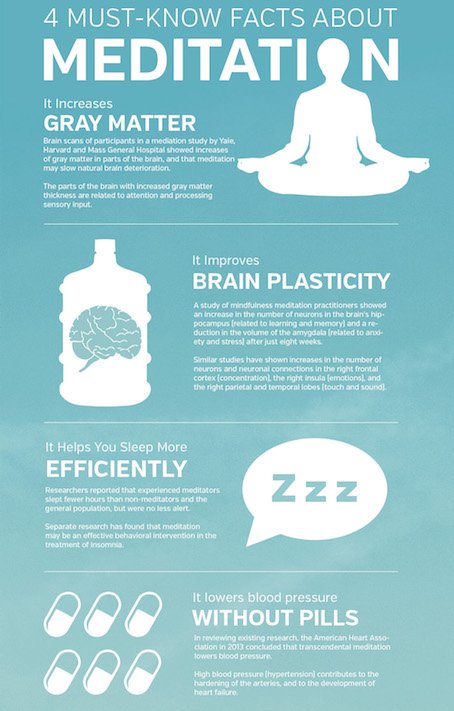What Does How does mindfulness affect the brain? - Bupa UK Do?

How Re-Wiring Your Brain for Happiness: Research Shows How can Save You Time, Stress, and Money.
The meditation-and-the-brain research study has actually been rolling in progressively for a number of years now, with new research studies coming out almost each week to illustrate some new benefit of meditation. Or, rather, some ancient advantage that is recently being verified with f, MRI or EEG. The practice appears to have an incredible variety of neurological advantages from changes in grey matter volume to decreased activity in the "me" centers of the brain to boosted connectivity between brain areas.

Research — Andrew Newberg
Doubters, of course, may ask what good are a few brain modifications if the psychological impacts aren't simultaneously being highlighted? Luckily, there's good evidence for those too, with studies reporting that meditation helps relieve our subjective levels of anxiety and anxiety, and improve attention, concentration, and overall mental wellness.

Individuals who had actually been practicing meditation for approximately twenty years had more grey matter volume throughout the brain although older meditators still had some volume loss compared to younger meditators, it wasn't as noticable as the non-meditators. "We expected rather little and unique results located in some of the areas that had actually previously been connected with practicing meditation," stated research study author Florian Kurth.

Meditation Will Change Your Brain… For the Better! - Sugar Ridge Retreat Centre

A Neuroscientist Explains the Effect of Meditation on the Brain ~ Fractal Enlightenment
k.a., "monkey mind." The DMN is "on" or active when we're not considering anything in specific, when our minds are simply roaming from believed to believed. Considering This Author -wandering is usually related to being less delighted, pondering, and fretting about the past and future, it's the goal for lots of people to call it down.
What Does Meditation Changes Your Brain! - School of Positive Do?
And even when the mind does begin to wander, due to the fact that of the new connections that form, meditators are better at snapping back out of it. A review study last year at Johns Hopkins looked at the relationship between mindfulness meditation and its ability to lower symptoms of depression, stress and anxiety, and discomfort.
3. If this sounds low, remember that the impact size for antidepressants is likewise 0. 3, that makes the impact of meditation noise pretty good. Meditation is, after all an active type of brain training. "A lot of individuals have this concept that meditation suggests sitting down and doing nothing," says Goyal.
